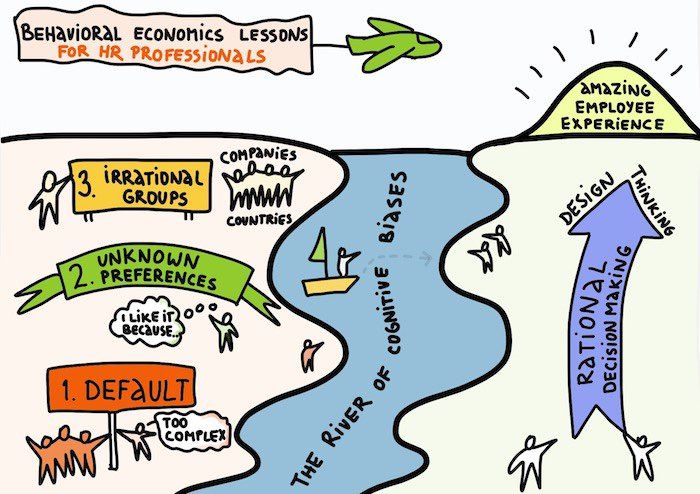The Impact of Human Behavior - Do They Make Economics Useless?

What makes the economy go round isn’t money, it isn’t the production or consumption of goods. It’s what’s inside all of us - hidden under depths of rationale and thought; human behaviour. Our basic instinct fueling our need for basic necessities. Our behaviour makes us act a certain way. We talk because of it. We play because of it. We study hard and at the same time procrastinate because of it. We are humans, because of our behaviour.
Human behaviour can be a tricky thing to understand. People spend whole years and months, some even whole lives trying to understand their behaviour. As complex individuals, to be able to master one’s full behaviour is something many can only dream of. This begs the question of how we can quantify this into theories. How then do we come up with laws of supply and demand when we have no idea whether the actions of people will make the stock go up, down or curve sideways and do a full loop? It all boils down to assumptions.
Assumptions of these human behaviours lie at the core of traditional economics. Every economic model when analysed and torn apart to its core shows the basic rudimentary assumptions that their models are based off of. An example can be seen in Alfred Marshall’s model of Neoclassical Economics. Under the assumption of humans being rational, logical beings “Homo Economicus” make up a substantial part of the theory. We assume that everyone is inherently smart, and will always do what they are “in theory” meant to do as it is the best choice. Does this actually happen in real life?
We aren’t robots. When presented with the exact same choice however during different times we may not even act the same way. Our bounded rationality challenges the notion that we are logical. We can’t always account for the same situation to have the exact same effect on a person. To account for that we have to truly understand what kind of specific personality each and every person has. Many parents can’t even figure out how their child thinks and what their character is, making the task for economists near impossible. Not to mention that people can actively change personalities at the same time.
Let's take James as an example. In the case that James is an alcoholic and has 2 sons, John and Adam; John seeing that alcohol has corrupted his father’s life decided to avoid it his entire life. Adam also sees his father as an example, however he decides to follow into the dark path of drinking. For economists this is similar to having to shoot a bullet at a target, with no clue what the target looks like or where the target is. Moreover, the target can move at any second. This directly clashes against how assumptions in classical economic theories group the targets into a single specified location, and create generalised approximations of how the target might move. These assumptions seem to render economic theories useless, as there is no use in predicting something which isn’t even practical. This begs the question of why economists even make these assumptions in the first place.
With other forms of science, laws of nature are present to keep the experiment grounded; while also making it quantifiable and able to derive quantitative results from it. Physics has its 3 laws of Newton. Chemistry contains its formulas and concepts. Concepts that no matter how many people point a gun to your head, or even if the Moon comes crashing into the Earth, the concepts would still be true. Economists often hope that the same thing can be applied to economics. Without assumptions there are simply too many factors to take under control; we cannot reach a conclusion.
Although bounded rationality challenges the foundation of those theories, simply having these theories to act as a guide can give us rough estimates of predicted results. It builds the foundation for us to have something to grow a moderately implementable concept. A set of results, even though it may not be entirely accurate, would still be more of use than having nothing at all. Even in physics, we still use the base ideas of assumptions to help generalise certain concepts and ideas. Albeit air resistance plays a large role, we still assume that the effects are minimal just to be able to get a final result. It isn’t like the results are completely useless, most of the time it gives results which aren’t half bad and can lead to the implementation of certain policies and theories.
Without economic theories such as the neoclassical theory, we would’ve never reached the all-time high levels of resource allocation and efficiency we have collectively achieved. While bounded rationality has the potential to shake the foundations of economic theories, the substantial edifice of these theories remains resilient, steadfastly offering insights into the optimization of scarce resources.